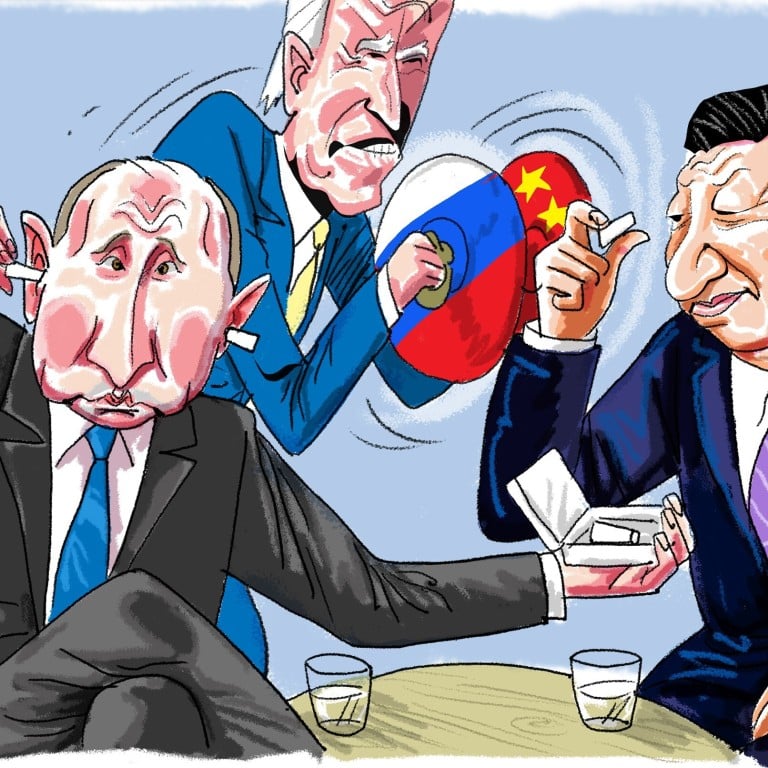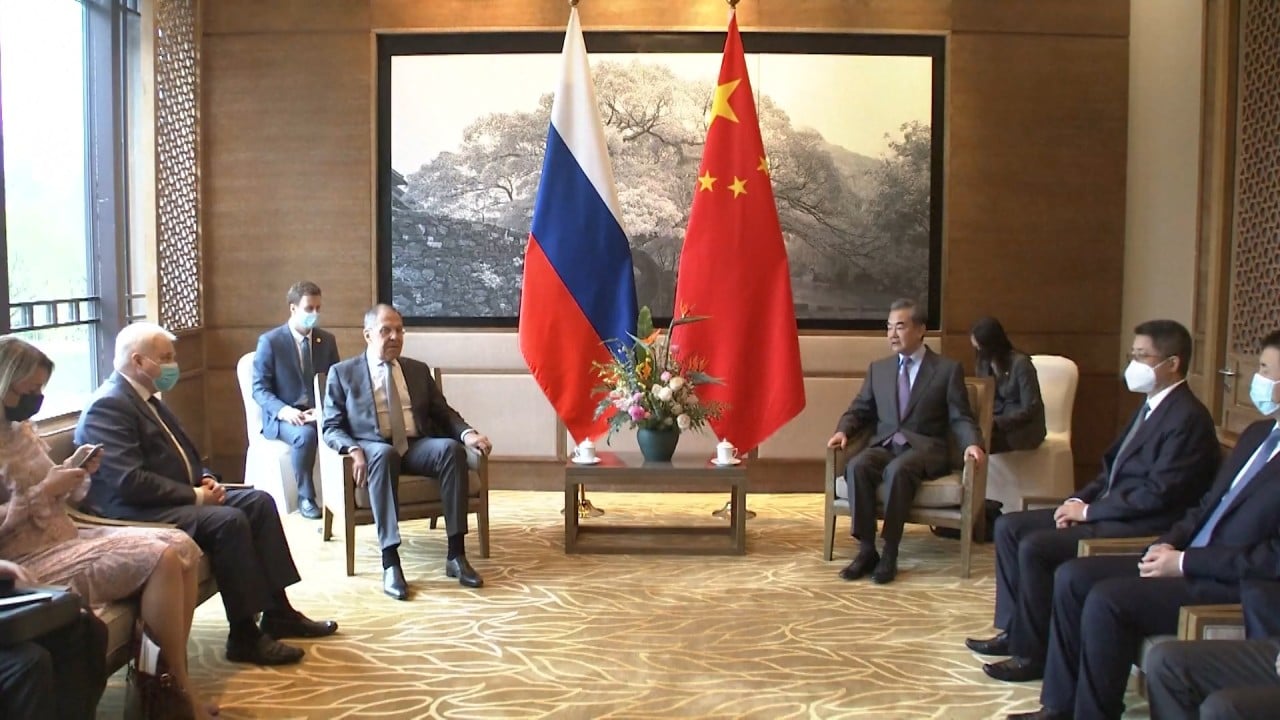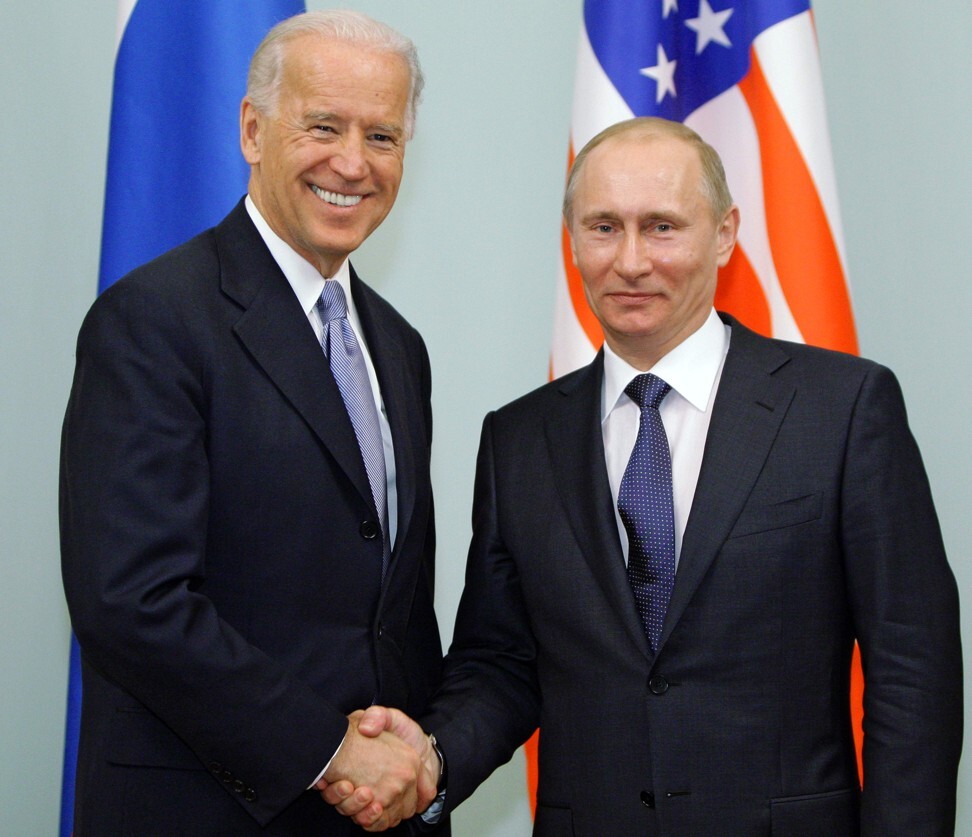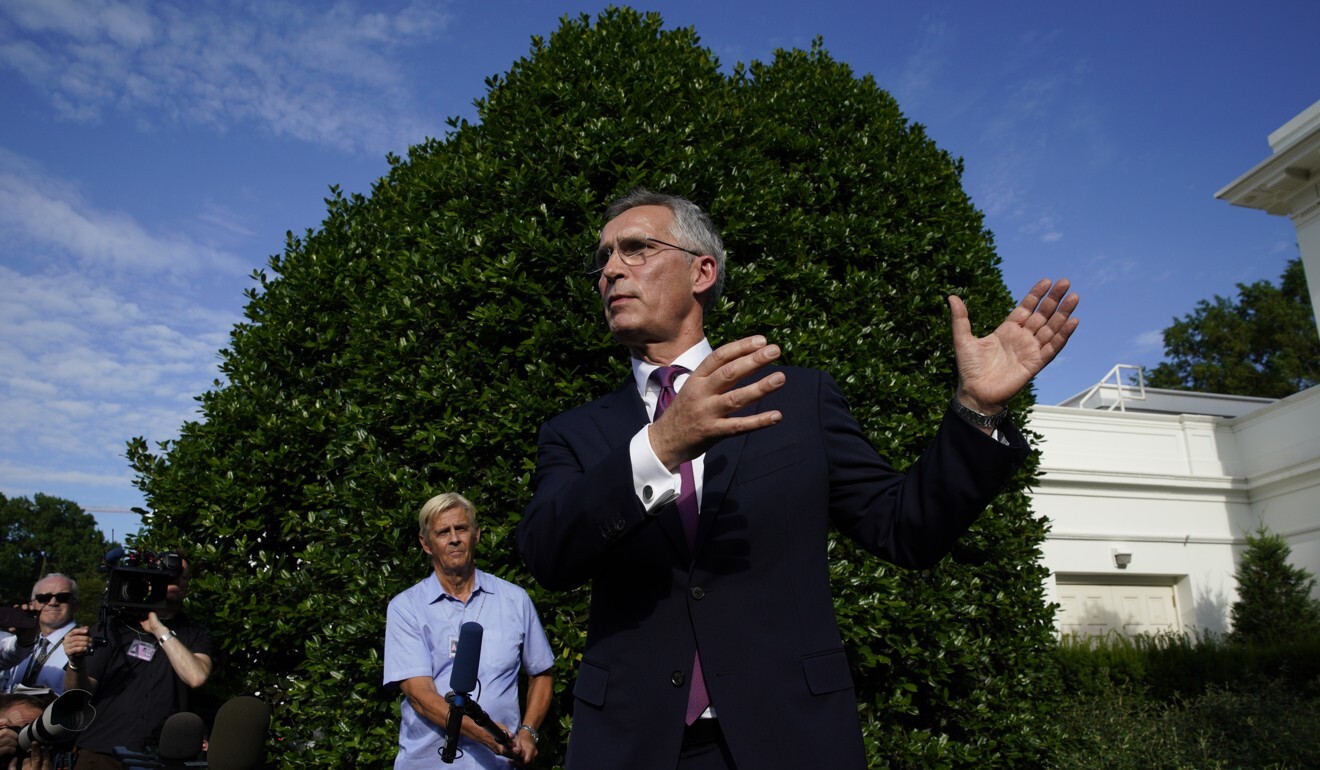
How US belligerence is driving China and Russia closer together
- Biden has been proclaiming that his trip to Europe is aimed at promoting an ‘alternative to China’ while confronting the ‘harmful activities’ of Beijing and Moscow
- In response, China and Russia are strengthening ties and seeking to safeguard core interests
Despite low expectations for the meeting, both sides see it as a timely opportunity for an in-person exchange of intentions on the most pressing issues of shared interest.
Each side’s ambitions for the rendezvous seem different. Putin has been promoting the summit as an opportunity to improve heavily damaged relations, claiming that American attempts to “hold back” Russian development are Moscow’s only disagreement with the United States.

01:12
China, Russia foreign ministers meet as countries stand ‘back to back’ amid rise in US tensions
In contrast to Russia’s approach, Biden seems to be opting for more hardline tactics, vowing to press Putin on human rights and stand with European allies against Russia, as well as responding to its “future harmful activities”.
In this light, Putin is also keen to bolster ties with China. Speaking at the recent St. Petersburg International Economic Forum, he restated his long-time appraisal of Russia-China relations.
He underscored that bilateral ties have reached an “unprecedentedly high level”, adding that Russia is eager to deepen cooperation with China in more areas.

The latter is exemplified by the recent launch of Russian-designed nuclear power units, and the two nations are heading towards the ambitious goal of reaching US$200 billion in bilateral trade by 2024.
In the first five months of 2021, Russia-China trade grew 23.6 per cent year on year, after having fallen 2.9 per cent in 2020 to US$107.8 billion. China’s post-pandemic recovery is flowing smoothly, while Russia is lagging behind. For the 2024 trade milestone to be achieved, Moscow needs to revive its economy.
The fact that such an initiative comes from Beijing shows Moscow can be assured of Beijing’s support, whether ahead of the Biden summit or in other geopolitical circumstances.

02:23
Gloves off at top-level US-China summit in Alaska with on-camera sparring
Equally, Russia has echoed China’s rhetoric. Russian Foreign Ministry spokeswoman Maria Zakharova recently said the US State Department respects only those “who implement a destructive American agenda”.
Importantly, Putin noted that Moscow and Beijing will “safeguard common interests”. This aligns with comments during the Lavrov-Wang phone conversation, when they vowed to support each other on issues concerning “core interests”.
In what has been called the transatlantic security alliance’s “pivot to China”, it appears to be shifting priorities for the first time since its founding in 1949, prioritising China rather than focusing on the Soviet/Russian threat.

Such assessments are inevitably driving China and Russia into a closer embrace as they feel a sense of greater alienation and rivalry with the US-led coalition.
Facing the implementation of Biden’s efforts to unite democracies against authoritarian states, and threats to their core interests, Russia and China have demonstrated the depth and strategic significance of their bilateral ties.
Danil Bochkov is an expert at the Russian International Affairs Council

